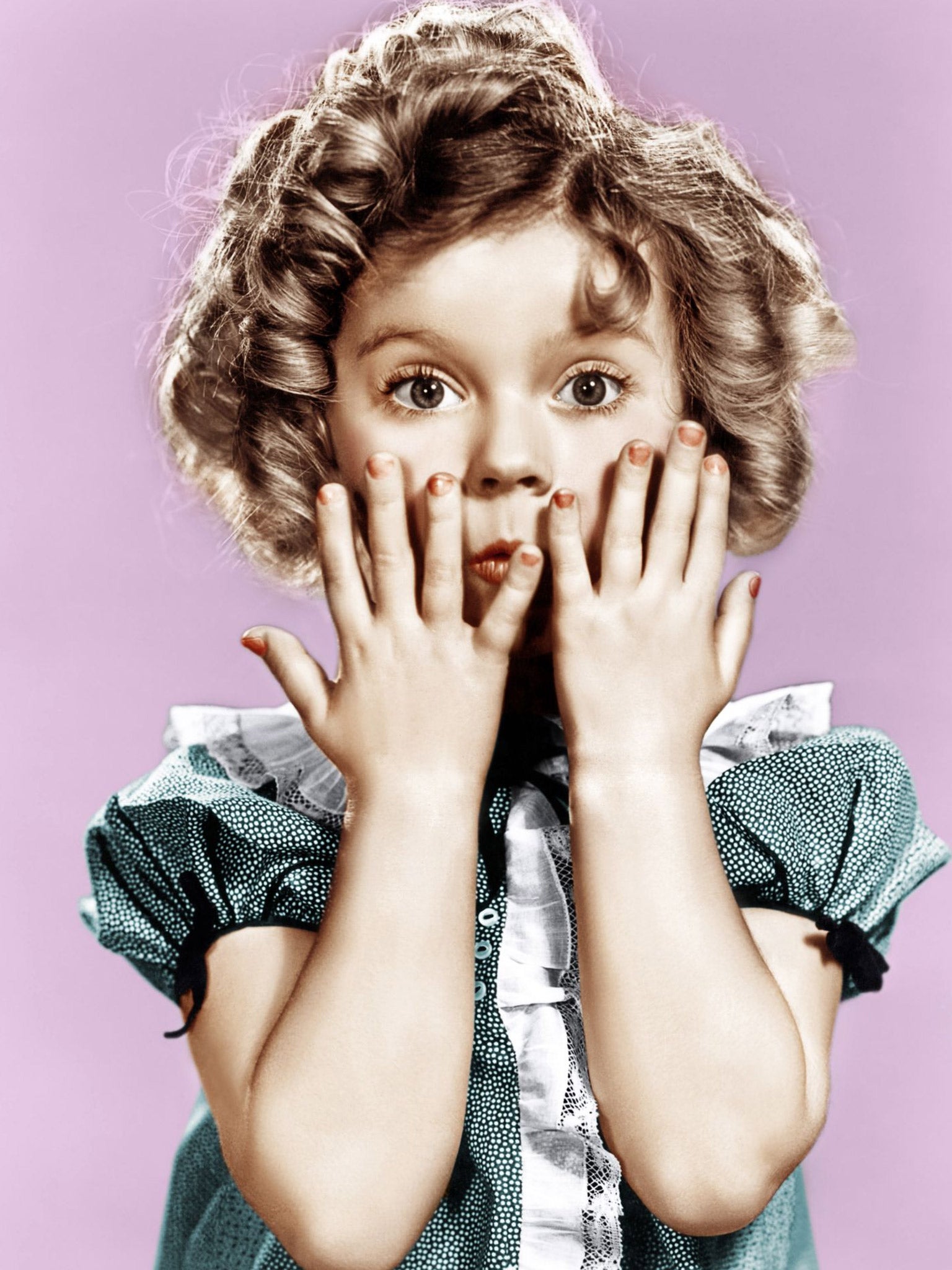Shirley Temple: Farewell to America’s little darling
Shirley Temple, who has died aged 85, was the definitive child actress – so much so that when she grew up, there was nothing left for her in Hollywood

There were child stars before Shirley Temple. Jackie Coogan, Charlie Chaplin’s impish sidekick in The Kid (1921), was a huge name in the silent era. Diana Serra Cary, still alive today at the ripe old age of 95, became a millionaire before she was 5 for her work on the Baby Peggy films in the 1920s.
Other big young names followed after Temple. In recent times, we’ve had Tatum O’Neal winning an Oscar at the at the age of 10 for Paper Moon and Macaulay Culkin becoming a global box-office phenomenon in Home Alone. Temple, though, was, and will always remain, the quintessential child star.
Temple’s films aren’t much watched today but that doesn’t affect her status. Her name and image still remain instantly recognizable.
There have been many theories as to why the tiny young actress so fascinated the American public during the Depression era. In his book, The Genius Of The System, film historian Thomas Schatz pointed out that Temple thrived during a period of social and political turbulence when “a good many Hollywood movies... expressed a longing for simpler times and celebrated simpler folk”.
The youthful Temple certainly had a sense of theatre. She could sing, dance and effortlessly upstage her adult co-stars. Her career would surely have foundered if she hadn’t possessed genuine talent. Temple was capable of hoofing toe to toe with Bill “Bojangles” Robinson. Collaborators spoke highly of her professionalism. “She was always on the job and ready – knew all of her dialogue and her songs and dances,” director Allan Dwan, who generally “liked to avoid children”, enthused of her. Even the famously bad tempered John Ford eventually learned to appreciate Temple, after directing her in Wee Willie Winkie.
With her dimples, curls and sweet, gurgling voice, Temple was also the very definition of cutesy innocence. In an era before Candid Camera-style TV shows in which parents could show off amateur footage of their kids, she catered to that strange need of audiences to coo over precocious children.
Graham Greene speculated in Night And Day magazine in 1937 that Temple stirred up unholy feelings in some of her adult fans. “Her admirers – middle-aged men and clergymen – respond to her dubious coquetry, to the sight of her well-shaped and desirable little body, packed with enormous vitality, only because the safety curtain of story and dialogue drops between their intelligence and their desire,” Greene wrote, calling her a “complete totsy” and thereby provoking an enormous controversy, a lawsuit for libel and, eventually, the closure of the magazine.
The irony is that much of Temple’s appeal lay in her wholesome quality and the cheerful innocence she projected in films like Curly Top, Baby Take A Bow and Little Miss Marker. She wasn’t too much of a smart alec on screen. Her precociousness was always counterbalanced by her ingenuousness. Her characters tended to do the right thing eventually, even if she always had a sense of mischief.
In a June 1994 article for Sight And Sound magazine, film historian and critic Bret Wood made a persuasive argument that her star image was never quite as innocent as it seemed. He quoted extracts from her autobiography in which Temple recalled being made to sit in the laps of some unsavoury patrons, FBI Director J Edgar Hoover among them. “Hoover’s lap was outstanding as laps go,” she wrote. “Thighs just fleshy enough, knees held calmly together, and no bouncing or wiggling. One arm circled me protectively and mine curled around his neck as I rested my cheek against his.”
Temple started her film career at the age of three in a series of one reel comedies called Baby Burlesks made by Educational Pictures. These were skits on popular adult films of the time. Temple later described them as “a cynical exploitation of our childhood innocence”. In one of the first, Runt Page (1932), inspired by hardboiled newspaper satire The Front Page, the kids’ voices are dubbed by adults. Temple is a femme fatale in a high chair. There is a very strange scene which shows Temple’s character Lulu Parsnips in her nappies – as are all her co-stars – hugging one of the boys.
When Educational Pictures went bust, Temple moved into the mainstream and started making more respectable family films for the big Hollywood studios. As she acknowledged, there was something freakish about her success. She wasn’t just a popular child actress. She was as much a symbol of the Depression era as Mickey Mouse or Rin Tin Tin. (“We only met once and he licked my face,” she said of Hollywood’s most popular dog in an interview with Michael Parkinson.) The more popular she became, the more Hollywood invested in her and pumped up her star image. In 1935, at the age of six, she was awarded a special Oscar “in grateful recognition of her outstanding contribution to screen entertainment during the year 1934”. For four years in a row in the mid to late 30s, Temple was Hollywood’s biggest star. Fox boss Darryl Zanuck doted on her – understandable given that she was easily the studio’s most bankable asset – and set to work small armies of screenwriters to develop suitable projects.
As she grew older, Zanuck sensibly put her into slightly more grown-up films that didn’t just play on her babyish looks. That worked, at least at first. However, for all her talent, Temple’s film career had begun to fizzle out by the time she was in her late-teens (she retired at 21). The image of Temple as a child star was so powerful that, it turned out, not even the actress herself could compete with it.
Join our commenting forum
Join thought-provoking conversations, follow other Independent readers and see their replies
Comments